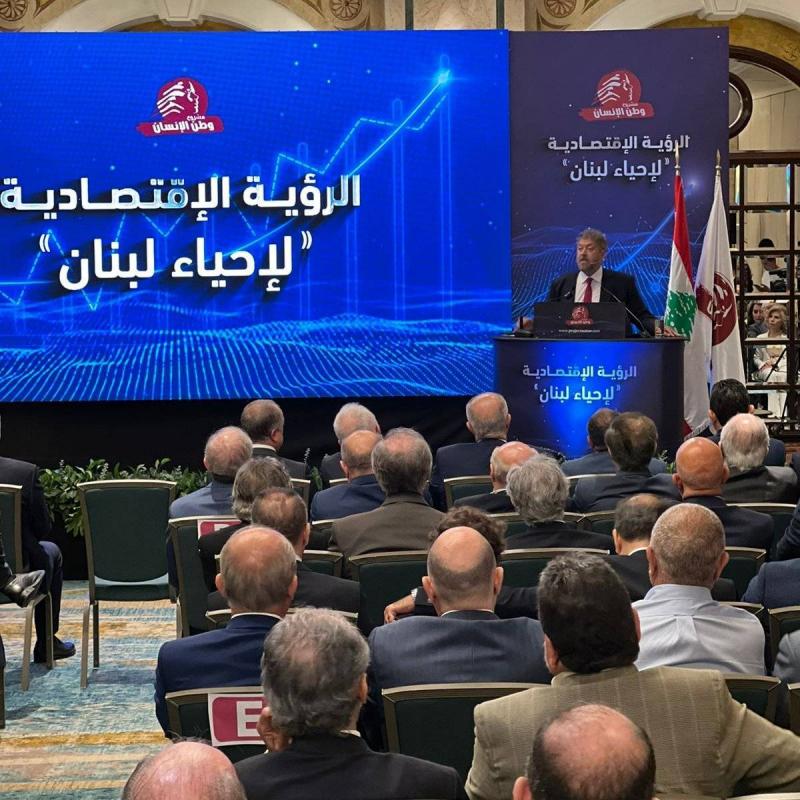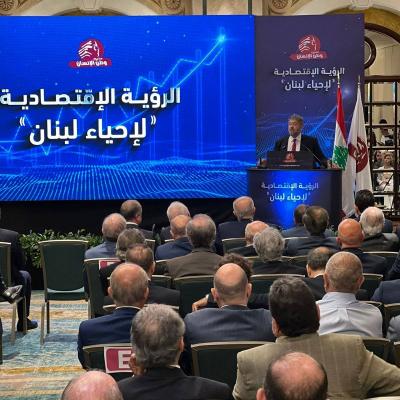Deputy Ni'mah Afrem launched an economic project titled "The Economic Vision for Reviving Lebanon." During a press conference held at the Venicia Hotel in Beirut, Afrem introduced a girl from the world of artificial intelligence to co-present the event, a first for any Lebanese politician, attended by parliamentary and ministerial figures.
According to Afrem, the plan is based on six key economic pillars:
1. **Bank Secrecy Law:** This law, which was approved by the Parliament, is described as the cornerstone for starting the revival journey. It aims to secure protection against corruption, shed light on it, combat money laundering, and tax evasion, which were causes of the financial collapse. The importance of the judiciary in preventing extortion and politicization is also emphasized.
2. **Capital Control:** This is deemed essential for protecting the Lebanese financial system, establishing controls on transfers abroad, and safeguarding depositors' rights.
3. **Fiscal Order and Loss Distribution:** This involves identifying the financial gap and holding accountable the parties responsible for the state that squandered the Lebanese people's dollars over the past 20 years without producing anything, placing the greatest responsibility on the state.
4. **State Asset Investment Fund:** This fund includes investments in human resources, along with valuable commons and maritime rights. Afrem believes that placing these in an asset investment fund would secure liquidity, assist in retrieving depositors' funds, and support the sovereign fund, potentially transforming it into a generational fund.
5. **Achieving Financial Balance in Budgets:** The economic plan should start from the Cabinet, concluding what was initiated with McKinsey, incorporating the characteristics of infrastructure projects that are essential for creating competitive capacity.
6. **A Basket of Laws and Procedures:** Particularly given that there are "pending laws" exceeding 70, lacking appointments, bodies, or executive decrees. Afrem pointed out that this basket forms the structure of the new administration, highlighting the importance of laws awaiting approval, especially the law on judicial independence to protect the Lebanese administration from politicization, alongside appointments of high-ranking officials in public administrations.
In an interview with "Wardena," Afrem stressed that "a free economy is not the cause of the financial collapse, but rather the unproductive, rentier, and unbalanced economy, coupled with the politicization of every decision made." He affirmed that "a few investment projects are sufficient to return depositors' money" and mentioned some initiatives like creating private landing pads for passenger planes or expanding roads leading to ski resorts to attract more tourists.
Afrem viewed that "the path to revival should start with electing a president with a comprehensive project that brings us to the place we deserve to be," emphasizing that the responsibility for the current collapse lies with the Lebanese state, warning that failing to retrieve depositors' funds would result in a loss of investor trust in the economy.
He raised a series of questions, considering the future when humanity would face technologically produced products that are smarter than themselves. He asked what would happen to the planet when advanced countries stop importing labor in less than five years, preferring machines over humans, and where Lebanon would stand in this development. He underscored the prospect of facing two planets: one that experiences long-awaited productivity, development, and technology and another with a regressing, suffering, and desperate population.
He added, "We will not accept that our children and grandchildren in the future look at this generation and call it a cursed generation, as it has placed them in a situation that has removed them from history, the present, and the horizons of the future in a world of development and technology." He urged the relevant parties in Lebanon to recognize their responsibility, which distills into two possibilities: "Either we revive Lebanon with hope and readiness to be at the core of the new renaissance era, or we lead it into perpetual death."




